Navigating the world of local events and meetups can be an exciting adventure, filled with opportunities to connect with like-minded individuals and expand your horizons. This guide provides a structured approach, from identifying potential events to fostering lasting connections within the community. By understanding the key elements of event participation, you can maximize your enjoyment and achieve your objectives.
This comprehensive guide will walk you through the process of finding, understanding, and participating in local events, emphasizing preparation, engagement, and post-event follow-up. Each section covers a crucial aspect of attending events effectively, equipping you with the tools and strategies for a rewarding experience.
Identifying Local Events and Meetups
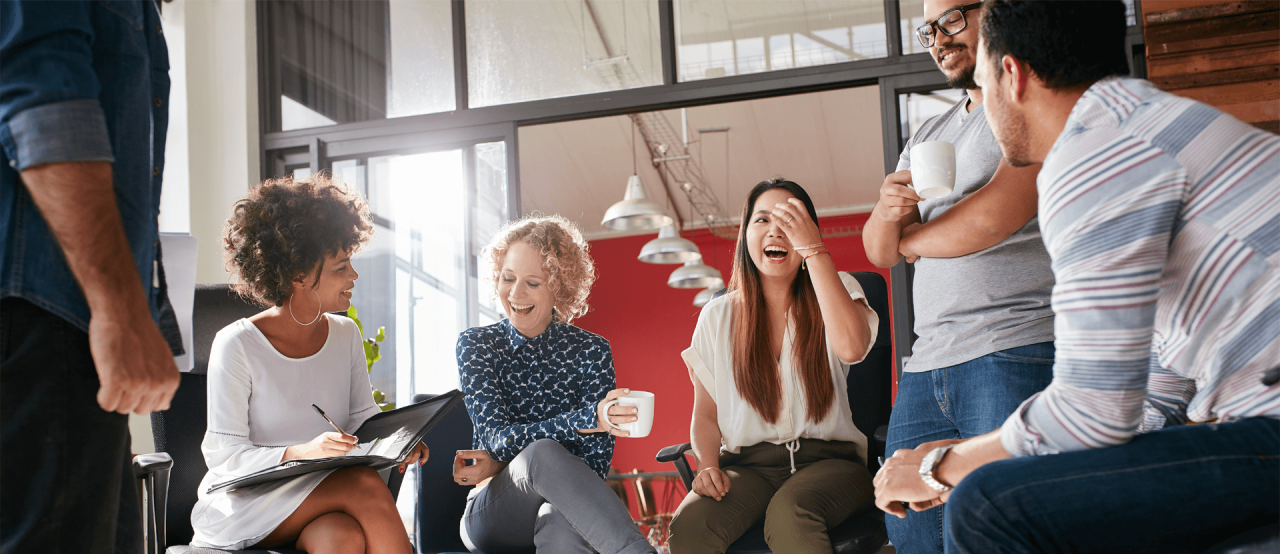
Discovering local events and meetups can be a rewarding experience, connecting you with like-minded individuals and enriching your community involvement. This section provides practical strategies for locating relevant events, categorized by interest.Finding events tailored to your specific interests allows for deeper engagement and fosters a sense of belonging. A methodical approach to searching will help you discover valuable opportunities and experiences.
Online Resources for Local Events
Locating local events and meetups often begins with online resources. Various platforms cater to different interests, offering a wide array of choices.
- General Event Listing Platforms: Sites like Eventbrite, Meetup.com, and Facebook Events provide a comprehensive overview of local happenings. These platforms offer broad search capabilities, making them valuable for discovering diverse events. They typically feature detailed descriptions, allowing you to easily determine the event’s suitability.
- Interest-Specific Platforms: For hobbies like photography, gaming, or sports, specialized platforms dedicated to those interests are often available. These platforms usually have a more focused audience and offer events catered to specific enthusiasts. For example, a dedicated photography group might organize workshops or exhibitions, whereas a gaming community might schedule tournaments.
- Professional Development Platforms: Websites and groups focused on professional networking and development frequently host seminars, workshops, and conferences. These platforms are valuable for career advancement and skill enhancement, offering opportunities for skill building and networking.
- Community-Specific Portals: Some local communities have their own online platforms for listing events and activities. These can be excellent resources for discovering local festivals, concerts, and community gatherings.
Comparing Event Listing Platforms
Understanding the strengths and weaknesses of various platforms is crucial for efficient event discovery.
| Platform | Filtering Options | Event Descriptions | User Reviews |
|---|---|---|---|
| Eventbrite | Excellent filtering by date, location, and . | Comprehensive descriptions often include details about speakers, vendors, and costs. | Generally positive, allowing for insight into attendee experiences. |
| Meetup.com | Good filtering by location and interest. | Usually detailed descriptions, particularly for meetups, with information about organizers and past attendees. | User reviews are common, providing insights into group dynamics and event quality. |
| Facebook Events | Decent filtering options, but sometimes limited to geographic areas. | Descriptions can vary in detail depending on the organizer. | Reviews can be limited, depending on the event. |
This table highlights key features to consider when choosing an event platform. Factors like filtering capabilities, description clarity, and user feedback will help you make informed decisions.
Effective Search Terms
Employing the right search terms is essential for successful event discovery.
- Specificity is Key: Instead of searching for “local concerts,” try “local jazz concerts near [city name].” This level of specificity yields more relevant results.
- s for Different Interests: For sports enthusiasts, try “local basketball league,” “hiking clubs,” “amateur football teams.” For professionals, “leadership workshops,” “career networking,” “professional development events” would be effective.
- Location-Based Searches: Incorporate location-specific s, such as “[city name] meetups,” or “[city name] events,” for optimal results.
By refining your search terms, you can pinpoint events that align with your interests and preferences.
Utilizing Social Media
Social media platforms are powerful tools for identifying local events and meetups.
- Follow Local Pages: Keep an eye on local community pages, business pages, and groups on Facebook, Instagram, and Twitter. These pages often announce upcoming events and gatherings.
- Join Relevant Groups: Participate in local groups dedicated to your interests. This often leads to invitations to upcoming events and meetups.
- Use Hashtags: Search using relevant hashtags on Twitter or Instagram to find local events and activities. For example, “#[city name]events” or hashtags specific to your interests (e.g., “#localartists,” “#runningcommunity”).
Leveraging Community Forums and Bulletin Boards
Local community forums and bulletin boards can serve as valuable resources for discovering events.
- Check Local Online Forums: Look for community forums, message boards, or neighborhood groups that post information about local happenings.
- Visit Physical Bulletin Boards: In some communities, physical bulletin boards in local shops, libraries, or community centers might advertise events. These local resources provide valuable information on community events and activities.
Understanding Event Details and Requirements
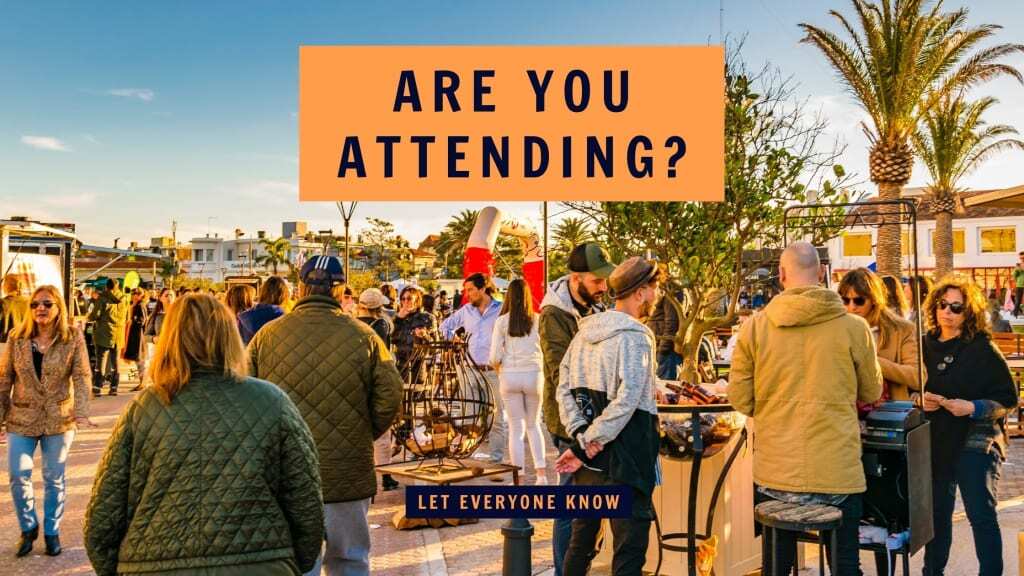
Attending local events and meetups can be a rewarding experience, enriching your social and professional networks. However, a crucial step in ensuring a positive experience is carefully reviewing the event’s details. This involves paying close attention to critical information that will help you decide if the event is a good fit for your interests and availability.Thorough preparation is essential to maximizing the benefits of attending any event.
Understanding the specifics of an event, from the date and time to any registration requirements, ensures a smooth and enjoyable experience. This meticulous approach also helps you avoid potential conflicts or disappointments.
Event Detail Review
Understanding the specifics of an event, including dates, times, locations, and registration procedures, is vital. A clear understanding of these details allows you to plan accordingly and avoid any unforeseen issues. For instance, knowing the exact date and time of an event will help you schedule your time effectively. Similarly, knowing the location ensures you can plan your travel arrangements.
Registration procedures, such as required forms or payment methods, should be reviewed to ensure you complete the process successfully.
Crucial Details to Look For
When selecting an event, consider several key factors. The event’s relevance to your interests is paramount. For example, if you’re interested in technology, choose an event related to your area of interest. The date and time should align with your availability. Also, consider the event’s location and accessibility to determine if it fits your travel plans.
Essential Information to Collect
Reviewing event listings carefully helps ensure you are fully prepared for the event. This includes gathering crucial information such as costs, dress code, age restrictions, and any specific requirements.
| Information | Importance |
|---|---|
| Cost | Understanding the cost helps you budget and plan your finances accordingly. |
| Dress Code | Knowing the dress code ensures you are appropriately attired for the event. |
| Age Restrictions | Checking age restrictions helps you confirm the event is suitable for your age group. |
| Specific Requirements | Understanding any specific requirements, like bringing identification or special equipment, prevents potential issues at the event. |
Questions to Ask Before Attending
Asking clarifying questions before committing to an event can help ensure a positive experience. This proactive approach helps you avoid any potential problems.
- Are there any specific requirements for attending, such as attire or required materials?
- What is the expected level of participation or engagement at the event?
- Is there an opportunity to network with other attendees or speakers?
- What are the event’s cancellation policies, if any?
- Are there any dietary restrictions or accommodations for specific needs?
Evaluating Event Organizers
Evaluating the reputation and credibility of local event organizers is a vital step in choosing a reputable event. Checking online reviews and testimonials from past attendees can provide valuable insight into the organizer’s reliability. Past event successes or any previous negative experiences reported by attendees offer clues about the organizer’s track record.
Preparing for an Event
Attending local events and meetups is a fantastic way to connect with others and explore your community. Proper preparation can significantly enhance your experience and ensure you make the most of these opportunities. This section Artikels essential steps for successfully preparing for an event.Effective preparation involves more than just showing up. It encompasses meticulous planning, proactive communication, and a thoughtful approach to navigating the event itself.
By understanding the nuances of event preparation, you can transform a potential encounter into a meaningful and rewarding interaction.
Creating a Personal Event Calendar
A well-maintained event calendar is crucial for keeping track of commitments and preventing scheduling conflicts. This organized approach allows for a more efficient and comprehensive event management strategy. A digital calendar, accessible from various devices, is highly recommended. This allows for seamless updates and reminders. Consider using a dedicated event management application or a digital calendar with robust features to schedule, organize, and categorize your events.
Considerations for Event Preparation
Several factors deserve consideration before attending an event. Transportation options, such as public transport, ride-sharing services, or personal vehicles, should be carefully evaluated based on the event location and your individual circumstances. Accommodation needs, if applicable, should be secured in advance. Furthermore, understanding the event’s dress code or suggested attire is vital for ensuring a comfortable and appropriate presentation.
Choosing appropriate attire demonstrates respect for the event and its attendees.
Pre-Event Preparation Checklist
A structured checklist can streamline the pre-event preparation process, ensuring that nothing is overlooked.
| Category | Task | Completion Status |
|---|---|---|
| Confirm Attendance | Confirm attendance to the organizer/host. | |
| Confirm Event Details | Verify event date, time, location, and dress code. | |
| Transportation | Plan your travel arrangements. | |
| Accommodation | Arrange accommodation if necessary. | |
| Packing Essentials | Pack necessary documents, personal items, and any required materials. | |
| Communication Plan | Develop a communication plan in case of unexpected circumstances. |
First Impression Strategies
Creating a positive first impression is crucial for fostering meaningful connections. Arrive on time, be open to conversation, and actively listen to others. Maintain eye contact, smile, and offer a warm greeting. Demonstrating genuine interest in others through engaging questions and active listening can significantly enhance your interactions. These strategies foster a positive and memorable experience for both yourself and the event participants.
Managing Expectations and Adjusting Plans
Flexibility and adaptability are essential when attending events. Unexpected circumstances might arise, requiring adjustments to your plans. Having a backup plan for transportation or alternative strategies for communication can mitigate potential issues. Maintaining a positive attitude and adapting to changes with grace and professionalism are key aspects of successful event participation.
Engaging with Events and Meetups
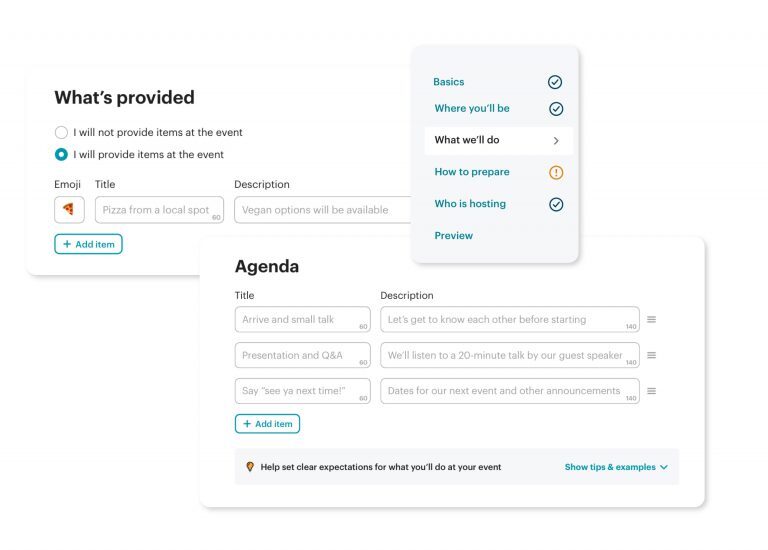
Attending local events and meetups is a great way to connect with like-minded individuals and expand your network. Effective engagement at these events is crucial for maximizing the benefits and fostering meaningful relationships. This section will guide you on strategies for initiating conversations, participating actively, and connecting with others afterward.Engaging with attendees requires a friendly and approachable demeanor.
Focus on active listening, respectful communication, and genuine interest in getting to know others. This fosters a welcoming environment for everyone.
Initiating Conversations and Networking
Building connections at events often involves initiating conversations with others. A confident and approachable demeanor is key. Smiling, maintaining eye contact, and using open body language can help create a welcoming atmosphere. Asking thoughtful questions demonstrates genuine interest in others. Remember to be mindful of personal space and comfort levels.
Icebreaker Questions
These questions encourage open dialogue and can help break the ice at events. They are designed to elicit more than a simple “yes” or “no” answer, fostering deeper conversations.
- What brought you to this event today?
- What are you hoping to gain from attending?
- What are you most passionate about in [relevant field/topic]?
- What are some of your favorite resources related to [relevant field/topic]?
- What are some challenges you’ve encountered in [relevant field/topic], and how have you overcome them?
- What are your goals for the future in this area?
Active and Respectful Participation
Active participation involves contributing to discussions and activities in a respectful manner. This includes listening attentively to others, asking clarifying questions, and sharing your own insights thoughtfully. Avoid dominating conversations and be mindful of others’ opinions. Be respectful of differing viewpoints, even if they differ from your own.
Positive and Constructive Feedback
Providing and receiving feedback is essential for growth and improvement. When offering feedback, focus on specific behaviors or actions, and frame your comments in a positive and constructive way. Use “I” statements to express your perspective. For example, instead of saying “Your presentation was boring,” try “I found the presentation a little slow-paced in the middle. Perhaps adding a few more visuals would make it more engaging.” When receiving feedback, be open to suggestions and consider how they can help you improve.
Connecting After the Event
Following up with event attendees and organizers is important for maintaining connections and fostering future collaborations. Exchange contact information with people you connect with. Send a brief thank-you note or message to express your appreciation for their time and insights. If appropriate, suggest future opportunities for collaboration. Following up with organizers can also be a good way to show your interest and appreciation for their work.
Building a Community
Attending local events and meetups offers a unique opportunity to connect with like-minded individuals and build a supportive community. This fosters personal and professional growth, providing invaluable networking opportunities and expanding your horizons. Engaging with others in a shared interest or passion can lead to lasting friendships and collaborations.Building a robust network of contacts is a significant benefit of participating in these gatherings.
From casual conversations to formal introductions, these events create fertile ground for forging connections that can have a lasting impact. The interactions can lead to new ideas, collaborations, and personal growth, ultimately enriching your life both personally and professionally.
Benefits of Attending Local Events
Attending local events and meetups provides numerous benefits, extending beyond the immediate interaction. These gatherings offer a chance to connect with individuals who share your interests and passions, fostering a sense of belonging and creating a supportive network. The shared experiences and conversations can lead to lasting friendships and collaborations.
Examples of Personal and Professional Growth
Local events and meetups provide avenues for personal and professional growth. For instance, a software developer attending a coding meetup might discover new technologies, collaborate with other developers, and find mentorship opportunities. A graphic designer attending a local art exhibition could gain inspiration, discover new design trends, and potentially find clients. These events can spark new ideas and introduce you to individuals who can contribute to your personal and professional development.
Strategies for Fostering Meaningful Connections
Actively engaging with attendees is key to fostering meaningful connections. Be present, listen attentively, and initiate conversations. Show genuine interest in others by asking thoughtful questions about their experiences and perspectives. Offer help and support when possible, demonstrating your willingness to contribute to the community. Sharing your own experiences and perspectives can also build stronger bonds with attendees.
Methods for Staying Connected
Maintaining connections after attending events is crucial for building a lasting community. Exchange contact information, such as email addresses or phone numbers, with individuals you connect with. Use social media platforms to follow up and share updates. Suggest future events or activities you can participate in together. Consider joining relevant online forums or groups to maintain ongoing interaction.
Building Relationships with Attendees
Building relationships with attendees at events requires effort and genuine interest. Start by introducing yourself and engaging in conversations that go beyond superficial pleasantries. Ask open-ended questions to encourage them to share their experiences and perspectives. Actively listen to their responses, and share your own thoughts and experiences in a way that fosters a two-way exchange. Follow up with a thoughtful message or a brief note to reinforce the connection.
Showing genuine interest and actively participating in conversations will build stronger relationships.
Post-Event Follow-Up and Evaluation
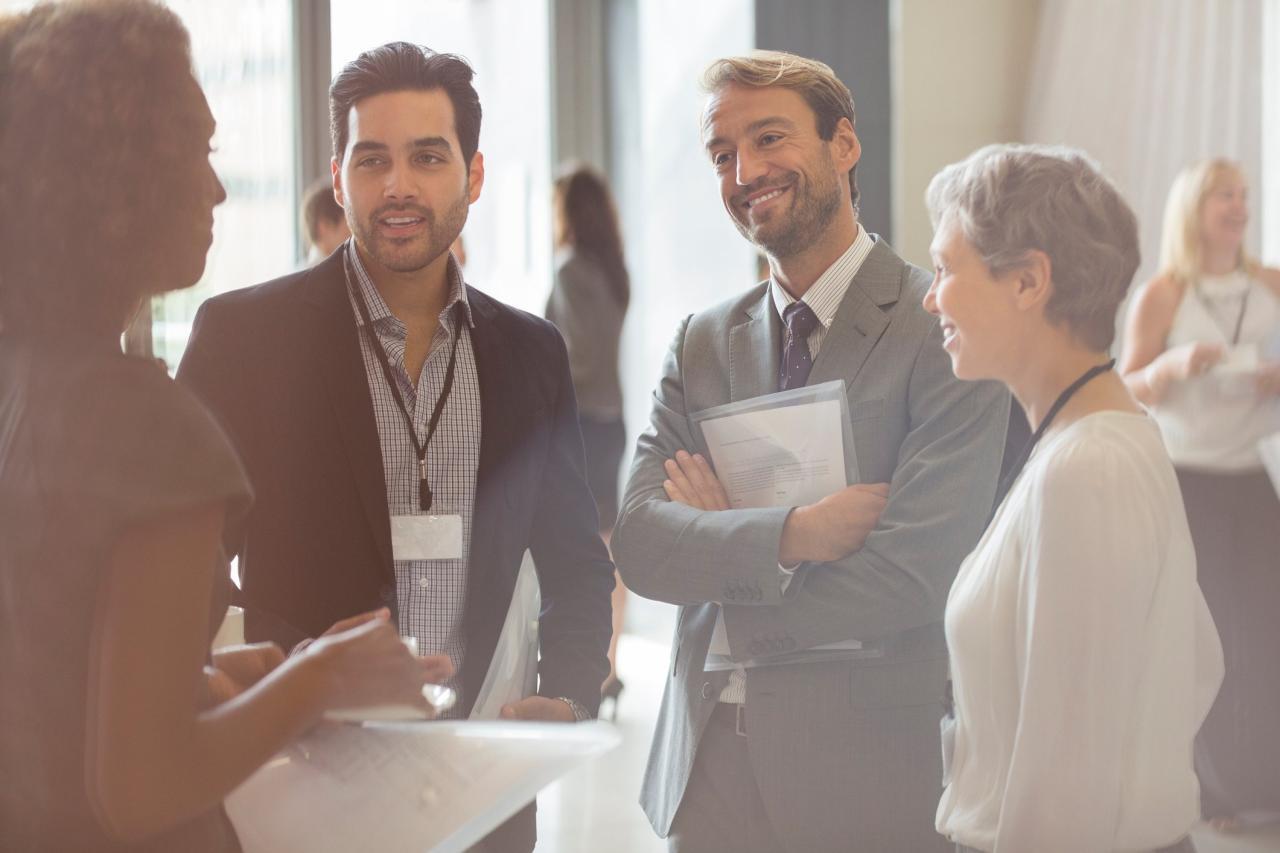
Following a local event or meetup, taking the time to follow up and evaluate your experience is crucial for continuous improvement and fostering stronger connections within the community. This process allows you to express appreciation, gather valuable feedback, and refine your approach to future events. It also demonstrates respect for the organizers and other attendees.Effective follow-up and evaluation demonstrates respect for the organizers and attendees, and contributes to a more enriching and productive experience for everyone involved.
Methods for Following Up
Following up after an event can take various forms, from simple thank-you messages to more involved feedback mechanisms. Expressing gratitude for the opportunity to participate is a fundamental aspect of politeness and shows appreciation for the event organizers’ efforts.
- Sending a thank-you message: A simple email or message expressing gratitude for the event and your experience can go a long way. Mention specific aspects you enjoyed or found helpful.
- Reaching out to event organizers: Offer constructive feedback on the event’s structure, organization, and content. Suggest improvements or ideas for future events.
- Connecting with attendees: Engage with other attendees through networking platforms or social media to discuss the event and foster future collaborations.
Strategies for Evaluating Participation
Evaluating your participation in local events and meetups involves a thoughtful reflection on your objectives, interactions, and overall experience. This process helps identify areas for growth and improvement.
- Identify your objectives: Before attending, consider what you hope to achieve from the event. Did you want to learn something new, meet new people, or network with professionals in your field?
- Reflect on your interactions: Consider how you interacted with other attendees and the event organizers. Note any helpful conversations, valuable connections, or areas where you could have improved your communication.
- Assess the event’s value: Determine whether the event met your expectations. Identify the key takeaways and assess the relevance of the information or activities to your goals.
Sharing Experience and Feedback
Sharing your experience and feedback with others can help others decide whether or not to attend similar events. This is a valuable contribution to the community and can foster a more supportive environment.
- Sharing on social media: Post a brief summary of your experience, highlighting what you enjoyed and learned. Include relevant hashtags to increase visibility and reach a broader audience.
- Discussing with friends and colleagues: Share your thoughts and insights with those who may be interested in similar events.
- Using online forums or groups: If applicable, share your feedback in relevant online forums or groups dedicated to the topic or community.
Using Feedback to Improve Future Experiences
Using event feedback to enhance your future experiences is an essential component of personal development and community engagement. It helps refine your approach to similar events and optimize your experience in the future.
- Analyzing feedback themes: Identify recurring themes in your feedback to understand patterns and areas for improvement.
- Prioritizing areas for improvement: Focus on addressing the most critical areas of concern based on your analysis of the feedback.
- Adjusting your expectations: Consider whether your expectations for the event were realistic and how you might adjust them in the future.
Constructive Feedback to Event Organizers
Providing constructive feedback to event organizers is a valuable contribution that helps them improve future events.
| Feedback Category | Example of Positive Feedback | Example of Constructive Criticism |
|---|---|---|
| Organization | “The registration process was smooth and efficient.” | “The check-in process could be streamlined by adding more staff to expedite the line.” |
| Content | “The speaker’s presentation was engaging and informative.” | “The presentation could benefit from more visual aids to enhance understanding.” |
| Logistics | “The venue was well-suited for the event.” | “The sound system could have been improved for better audio quality.” |
Final Wrap-Up
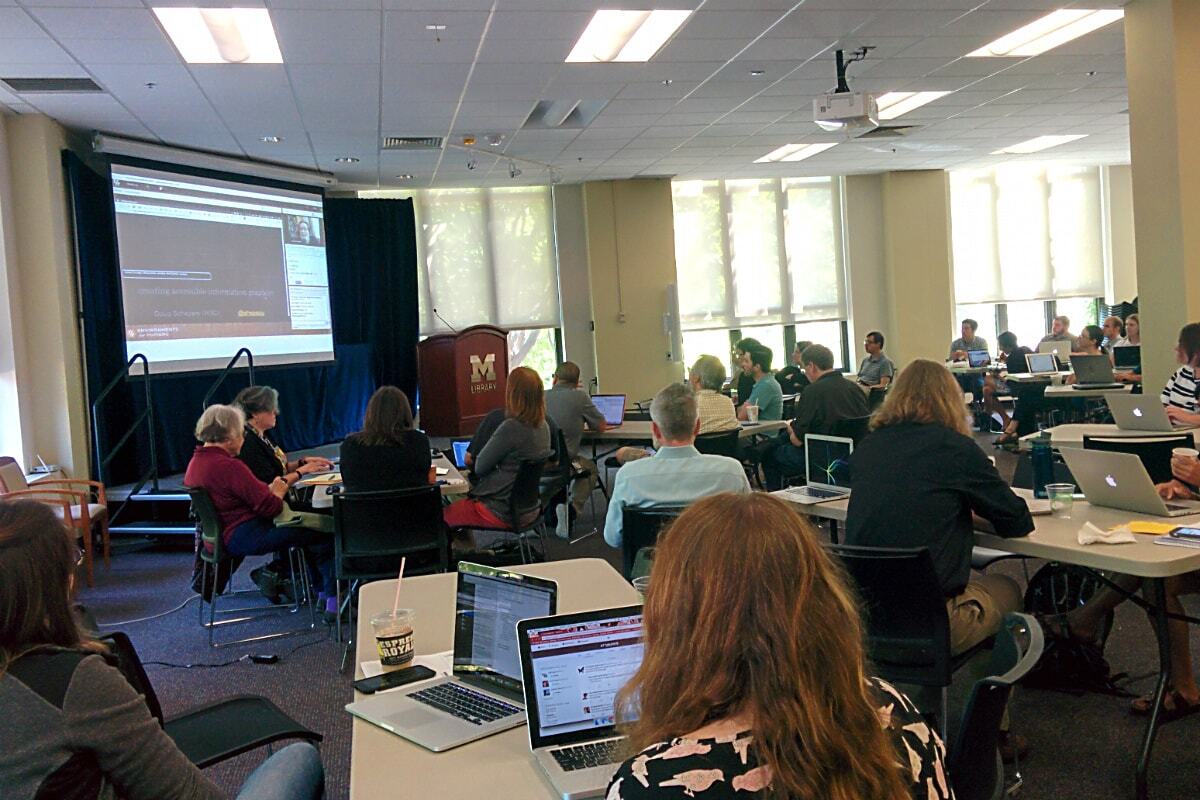
In conclusion, attending local events and meetups offers a rich tapestry of opportunities for personal and professional growth. By meticulously planning your attendance, engaging with attendees, and following up afterward, you can cultivate meaningful connections and build a vibrant community. This guide provides a roadmap to navigate this journey successfully, enabling you to make the most of these enriching experiences.